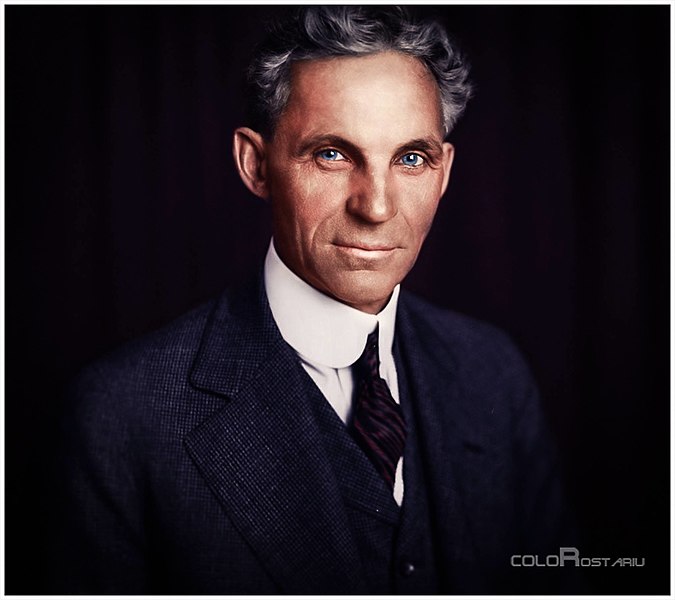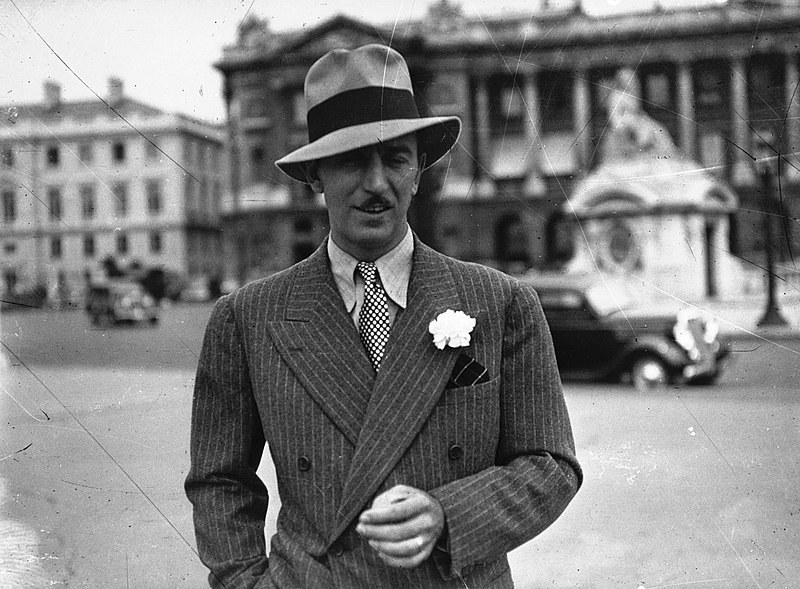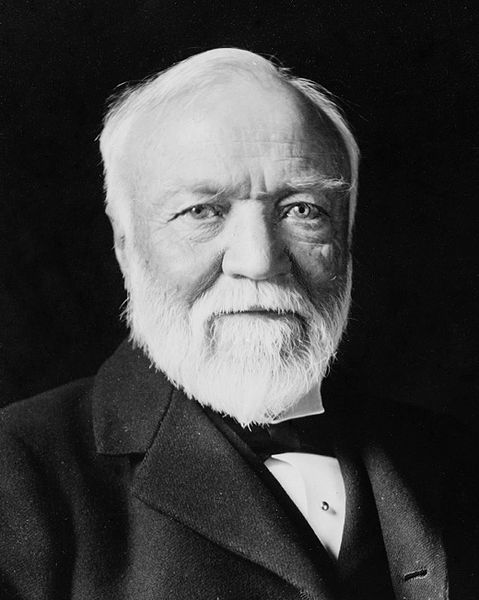Leadership skills and the right personality traits play critical roles in high positions. As a chief executive officer, board member, or director, your leadership skills can often make or break a business. While there are many business leaders worldwide, some tend to stand out more than others.
Over the last century, leadership styles have evolved significantly, with influential figures like Jack Welch driving major transformations in business practices. When you look at influential business leaders, we can get inspired by their actions, how they do it, and who they are. This post is dedicated to the most prominent leaders of the business world. We will focus on today and look at business leaders who have made waves until now.
Top 5 Best Business Leader Books
“Leaders Eat Last” by Simon Sinek
Sinek explores how great leaders build trust by putting their team’s needs first, creating a culture of collaboration and loyalty. This book emphasizes the human aspect of leadership.
“The Lean Startup” by Eric Ries
Ries offers a methodology for startups to innovate efficiently through validated learning and iterative product development. It’s a guide for leaders looking to build successful, sustainable businesses in uncertain environments.
“Good to Great” by Jim Collins
Collins identifies key factors that help companies transition from good to exceptional, focusing on disciplined leadership and strategy. It’s based on years of research into what drives long-term success.
“The Hard Thing About Hard Things” by Ben Horowitz
Horowitz shares candid insights into navigating the tough decisions and challenges of entrepreneurship. The book offers practical advice on managing crises and maintaining resilience.
“The 5 Levels of Leadership” by John C. Maxwell
Maxwell outlines a progression of leadership, from gaining authority to developing other leaders. It’s a roadmap for anyone looking to grow and enhance their leadership effectiveness.
Noteworthy Business Leaders Of The Last Century To Learn From
We often see business leaders on TV, in newspapers, and in online magazines. You admire what they do and wish to have a similar impact on your business and the world around you.
The great thing about these articles is that these leaders often share some of their personal stories that highlight their strategies for understanding and catering to clients’ needs. You can use these stories to help you learn from them. Ultimately, this strategy allows you to make improvements to yourself.
Henry Ford

You already know about Ford, which makes a range of magnificent cars. Perhaps you even drive a Ford yourself. Ford is now an internationally beloved brand, and we genuinely enjoy the cars they produce. Henry Ford is behind the Ford brand and started the company in 1920.
Henry Ford did not make the first car. He opened Ford after the first car was made, but he did not intend to be the inventor of automobiles. The problem was that these cars were mainly available to rich people. Henry noted this as a problem, wanting a solution where middle-class people could drive cars. He decided to reinvent the automobile to make it available to middle-class citizens. Henry Ford took control of his business operations to make automobiles affordable for the middle class.
If you’re wondering why Ford now offers vehicles in so many different price classes, then Henry Ford is the reason. His goal was to make vehicles more affordable. He also wanted cars to be more practical – a way to allow people who are not necessarily rich to have still a way to get around easily.
Despite being one of the most influential leaders of his time, Hendry was known for his modesty. He was a fair employer and paid his workers generously, even as he managed to lower the cost of cars. Sadly, in 1947, Henry passed away at the age of 83.
Reshma Saujani

Regarding modern-day business leaders, we should look at those empowering others. This is where Reshma Saujani comes into the picture. It is not only her leadership skills that stand out but also her commitment to helping a specific community.
Reshma Saujani’s emotional intelligence has played a critical role in her ability to lead and inspire others. She is a politician and lawyer in the United States. She founded an organization called Girls Who Code and continues striving to spread the benefits that the organization can offer. Girls Who Code empowers women to enter coding careers while offering training on various technology-related topics.
The organization has grown, and the services are now available in 42 states. There are also over 10,000 girls who are currently attending classes at these locations.
Jack Ma

A Visionary Entrepreneur
Jack Ma, the founder of Alibaba Group, is a prime example of resilience and visionary leadership. Despite facing numerous setbacks—like being turned down for 30 jobs after graduation—he remained determined to carve out his own path. His story is a testament to the power of persistence and believing in one’s vision, even when the odds are stacked against you.
Innovation and Adaptability
Alibaba’s success didn’t come from simply replicating existing business models—it was built on innovation and adaptability. Jack Ma embraced technology, adapting it to fit the unique needs of Chinese consumers and businesses. He recognized early on that the future of commerce would be digital, which positioned Alibaba as a leading player in the global e-commerce market.
Building a Strong Company Culture
Jack Ma also understood the importance of a positive, supportive company culture. He has been known for creating a work environment where employees are encouraged to take risks, think creatively, and work collaboratively. His leadership style emphasizes passion, patience, and persistence, which have become core values of Alibaba.
A Commitment to Giving Back
Beyond his business success, Jack Ma is also known for his philanthropic efforts. He has donated millions of dollars to education, environmental causes, and public health. His commitment to giving back reflects his belief in the importance of using success for the greater good, which has earned him respect not just as a businessman but also as a global humanitarian.
Elon Musk

When looking at leaders with severe business savvy skills, then Elon Musk comes to mind. Most people have heard of Elon Musk by now – born South African, but he holds Canadian and United States citizenship too.
In the modern day, Elon Musk is known for being the founder of Tesla. Apart from his involvement with Tesla, Elon is also the co-founder of Neuralink and the chief operating officer at SpaceX. He also holds positions at OpenAI and PayPal.
While not the world’s richest man, Forbes Magazine has nominated Elon as the 21st most powerful individual in the world.
His current visions are to change the world. He wants to improve transportation and to commute while bringing internet access to third-world countries.
Walt Disney

Everyone knows Walt Disney. He was the founder of the Walt Disney Company, but also a voice actor and an animator at the same time. Walt Disney had a massive impact on the animation industry within the United States, and his work also reached many other areas of the world.
Many new developments happened in the cartoons and animation industries through his work, impacting the individual experience of each person who enjoyed his creations. Walt is well-known for creating the iconic cartoon character Mickey Mouse. In the early 1920s, Walt Disney partnered with his provider as a co-founder to create the Disney Brothers Studio.
The studio quickly grew, and by 1928, Walt Disney was the first to introduce Technicolor animations and synchronized sound. It was also at this time that he started to produce feature-length animated cartoons for the first time.
Before these occurrences, Walt Disney grew an interest in drawing and art at a young age. He took up a couple of art classes while he was still a child, then got a job at 18 – which entailed illustrations.
Following his career’s massive success, Walt Disney opened up the first Disneyland theme park. He started planning to open another Disney theme park in 1965 but unfortunately passed away the following year. Walt Disney died at the age of 65.
Steve Jobs

Steve Jobs is another entry among business leaders whose names will live on in a legacy. He is most commonly associated with Apple Inc company. Steve was known as an investor and an entrepreneur.
Many people do not know that Steve Jobs also had the majority share in the Pixar company. He also served on the board of directors at Disney. Throughout his career, Steve also served as the CEO at NeXT.
Steve Jobs is widely known for his role, alongside Steve Wozniak, in popularizing the microcomputer during the 1970s. His keen interest in technology and computers eventually led him to create the first-ever Apple computer.
In 2011, we were shocked by the news of Steve Jobs passing away after succumbing to cancer.
Tim Cook

You’re probably aware that Tim Cook took over as CEO of Apple in 2011, succeeding the late Steve Jobs. Tim had been with Apple for over a decade, as he joined the company in the late 1990s.
Tim Cook took over as the CEO at Apple Inc following the death of Steve Jobs. During his time at Apple, since 2011, Tim has worked with various departments to drive more innovations in the business and produce products that aim to make a difference in the user’s life.
Before becoming the CEO, Tim was already part of Apple. He was appointed the senior vice president of Apple Inc in 1998. A few years into his career at Apple, Steve Jobs decided to position Tim as the chief operating officer.
Before joining Apple, Tim worked as a director for the fulfillment department at IBM’s North American head office.
Bill Gates

Most of us know Microsoft – especially if you’re a Windows user. It’s the operating system that powers many computers. Bill Gates started Microsoft, the company behind this operating system, in 1975. He wasn’t the sole founder. Bill Gates and Paul Allen were both co-founders of Microsoft.
Bill acted as the CEO and chairman of Microsoft until 2000, when he decided to step down as the CEO. At this time, Bill Gates remained a chairman but also started serving as Microsoft’s chief software architect.
Today, he is no longer as active in his co-founder role at Microsoft but instead acts there part-time. He started to reduce his involvement in Microsoft when he and his wife launched the Bill & Melinda Gates Foundation, where both are now viewed as business leaders.
Andrew Carnegie

Andrew Carnegie is one of those names you’ll continue to hear, even though he’s no longer with us. You’ll find that historians cite Andrew Carnegie and his actions often. He was one of the wealthiest men in the world and passed away at 83 in 1919. During the late 19th century, Andrew Carnegie was considered a leader in the steel industry in the United States.
Andrew is still regarded for the exceptional leadership skills he displayed, even to this day. At 65, he began to donate some of his wealth to various charitable causes, despite having accumulated a great fortune in the steel industry. In his generosity, Andrew gave away approximately 90% of his wealth to foundations and charities, including donations to various universities.
At 65, Andrew started giving away a large portion of the money he had accumulated. By the end of his life, he gave away 90% of his fortune, approximately $350 million. Today, his fortune would have been worth more than $65 billion. He gave this money to universities, several different foundations, and charities.
You can still read an article that Andrew wrote. “The Gospel of Wealth” was the title of the article. He published it in 1889, but you can easily find the article online today.
In 1889, Andrew published “The Gospel of Wealth.” In this article, Andrew instructed the wealthiest people on Earth to use the wealth they accumulate in such a way to benefit and improve our society.
What qualities define a great business leader?
Vision, innovation, and the ability to inspire are all hallmarks of legendary leaders. These figures possess not only the power of strategic thinking but also an unwavering belief in their goals, which enables them to navigate through uncertainty and adversity.
Great leaders have the foresight to anticipate challenges, recognize opportunities, and guide their organizations toward long-term success. They are able to adapt quickly, remain resilient in the face of setbacks, and remain focused on their mission.
In addition to strategic thinking, these leaders foster a culture of excellence within their teams by setting high standards and encouraging continuous growth. They cultivate an environment where employees are motivated to give their best effort and are empowered to take initiative.
A great leader doesn’t just manage operations; they actively invest in the development of their people, recognizing that a team’s success is built on trust, communication, and collaboration.
Emotional intelligence is another crucial quality that enhances leadership effectiveness. It allows leaders to connect with their team members on a deeper level, showing empathy and understanding while making critical decisions.
Emotional intelligence involves not only self-awareness but also the ability to regulate one’s emotions and respond thoughtfully to others. This emotional agility enables leaders to build strong relationships, resolve conflicts, and maintain morale, even in challenging times.
A good leader also understands the subtle but important difference between managing and coaching. While management focuses on directing and controlling, coaching is about guiding and empowering individuals to reach their full potential. By adopting a coaching mindset, great leaders help their teams grow, fostering a sense of ownership, accountability, and pride in their work.
As highlighted in this insightful YouTube video, there are even more valuable lessons and strategies to be learned about the qualities that distinguish exceptional business leadership.
Strategies for Small Business Owners
As a small business owner, having a well-thought-out strategy is crucial to ensuring the long-term success and sustainable growth of your company. Whether you’re just starting out or looking to scale, implementing effective business strategies can make a significant difference in how you approach challenges and seize opportunities. A robust strategy will provide clarity, guide decision-making, and help you stay focused on your goals.
One of the first steps for any small business owner is to define a clear vision and set measurable goals. Without a roadmap, it can be easy to become sidetracked by daily tasks or distractions. Your vision should reflect both the mission of your business and the impact you want to make in the marketplace. Setting SMART goals—specific, measurable, achievable, relevant, and time-bound—gives you a clear direction and metrics to track progress.
Another key strategy is building a strong online presence. In today’s digital age, an effective digital marketing plan is essential for attracting customers and establishing your brand. This includes having a user-friendly website, engaging with customers on social media, and investing in targeted online advertising to drive traffic and sales. Additionally, maintaining a solid reputation through customer reviews and testimonials can greatly influence the perception of your business.
Managing finances efficiently is also a cornerstone of small business success. Whether you’re handling cash flow, budgeting, or securing funding for expansion, having a sound financial plan will help ensure that your business remains profitable and solvent. Keep track of your expenses, monitor your financial performance regularly, and seek expert advice when needed.
Lastly, customer satisfaction and loyalty should always be a top priority. Creating a positive experience for your customers can lead to repeat business, referrals, and lasting relationships. In addition to providing quality products or services, listen to your customers’ feedback, resolve complaints quickly, and go the extra mile to exceed their expectations.
By implementing these key strategies, small business owners can enhance their ability to compete in the marketplace and build a lasting, sustainable enterprise.
Spinify can you become the best leader
Outstanding leadership is a skill that you’re striving for. It helps you feel confident in what you do and make better business decisions in your own company. Learning from the best is a great way to improve your leadership skills.
Emulating their strategies allows you to motivate employees and middle managers while also giving yourself new goals to pursue.
Great leaders are committed to continuous self-improvement—constantly refining their approach and adapting to new challenges. This mindset fosters growth, resilience, and the ability to lead through change.
As a leader, embracing a culture of feedback and accountability within your organization is key. It encourages transparency and creates a space where everyone feels empowered to contribute their ideas and talents.
At Spinify, we help you transform your leadership and drive success through gamification software that boosts sales teams’ internal efficacy, visibility, and motivation. By incorporating engaging, competitive elements into your workplace culture, you can foster stronger team connections and increase productivity.
Additionally, successful leaders recognize the importance of work-life balance for themselves and their teams. By prioritizing well-being, they create a more engaged, focused, and motivated workforce, which leads to better performance and reduced burnout.
Book a demo to learn how we can help you improve your leadership, coaching, and employee performance through the right internal business decisions.






